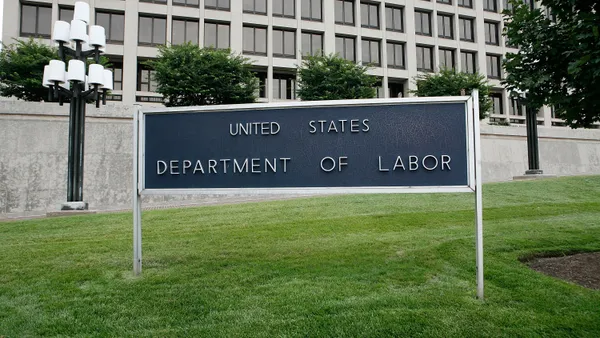Dive Brief:
- Voters in four states approved minimum wage hikes in the November elections, but GOP lawmakers are moving to rein in the increases, reports Bloomberg.
- Lawmakers have issued proposals to reduce minimum wage increases in Washington State, Maine, Colorado and Arizona. States and municipalities across the country have either introduced or already approved minimum wage proposals, says Bloomberg.
- Business groups continue to oppose minimum wage hikes, arguing that they’ll lead to job cuts and more unwieldy regulations. The NAACP and other liberal organizations have launched counter lawsuits, mostly in deep Southern states, to fight GOP opposition to minimum wage increases that they say violate the Voting Rights Act.
Dive Insight:
The national minimum wage rate remains at $7.25 an hour. With the Trump administration rolling back many pro-labor regulations from the Obama administration and a GOP-dominated Congress, employers can expect the federal rate to remain the same. But states — and even some cities — are a different story. Employees in many states generally approve of wage increases, which was reflected in voting initiatives this past November.
Recent studies done in California conclude that increases to the minimum wage likely won't kill jobs. However, potential changes to the federal overtime rule (still in limbo) could usher in salary increases that would further burden employers — especially in states like California, with its own special overtime rule in place and minimum wage increases on the way.
Attempts to overturn the voters' mandate to increase wages could backfire, depending on public response. But it's only one pro-employee regulation making it way through the states right now. Paid leave has also emerged on various state agendas, often tied to an increased minimum wage, signaling a growing interest by Americans in such policies. Bottom line: Patchwork, state-by-state compliance is only going to get more complicated.











